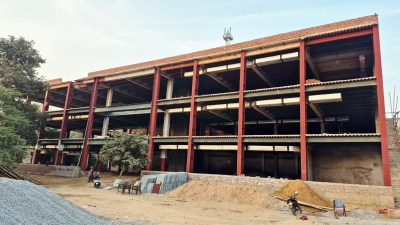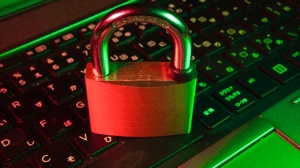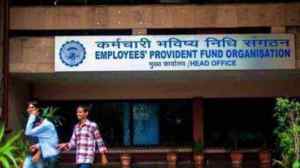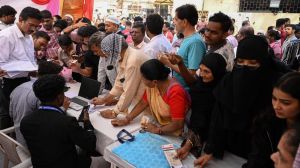India prepares for UN session
NEW DELHI, SEPT 18: India is bracing itself for an intense round of negotiations at the United Nations General Assembly UNGA in New Yor...

NEW DELHI, SEPT 18: India is bracing itself for an intense round of negotiations at the United Nations General Assembly UNGA in New York, with its recent nuclear tests and the Kashmir issue certain to find mention in the world body.
8220;It8217;s quite possible that an effort will be made to bring a resolution on the Indian nuclear tests, naming India and Pakistan8221;, said Dilip Lahiri, Additional Secretary UN in the Ministry of External Affairs.
Prime Minister Atal Behari Vajpayee8217;s address to the UNGA, scheduled for September 24, will be viewed as a definitive statement on India8217;s nuclear stance, New Delhi8217;s position on the Comprehensive Test Ban Treaty CTBT and the inequities in the global nuclear non-proliferation regime.
India managed to successfully deflect discussion on the nuclear issue at the recent Non-Aligned Summit in Durban, South Africa. Things will not be so simple at the UN, where western countries would be itching to put India on the mat for its nuclear audacity in barging into theexclusive nuclear club.
This will be India8217;s first opportunity to present its nuclear case at the global forum. And India watchers and India baiters alike will be going through Vajpayee8217;s speech with the proverbial fine tooth comb, to pick out the nuances of the country8217;s nuclear policy.
Kashmir is also expected to figure in U N Secretary General Kofi Annan8217;s address to the UN, but since references to Kashmir have occurred at every UNGA meet for the last so many years, South Block is not particularly worried about it.
From 1993 onwards, the UN Secretary General8217;s Annual Report on the activities of the oraganisation have repeatedly referred to the Kashmir issue, echoing that India and Pakistan should resolve the issue through negotiations.
In 1994, secretary general Boutros-Boutros Ghali, while appreciating the efforts of the two sides to resume their bilateral dialogue, had offered to 8220;exert every possible effort to facilitate the search for a lasting solution to the Kashmir issue, should the twosides so wish8221;.
Similar references were made in the two years that followed. In 1997, following the resumption of the bilateral dialogue there was no reference to the Kashmir issue.
But this year8217;s report reflects the renewed concerns over the long-standing dispute following the nuclear tests conducted by both India and Pakistan in the summer of 1998.
Apart from the reference in the Secretary General8217;s report, raising the Kashmir conflict is a regular item on Pakistan8217;s agenda at international fora. Islamabad expends considerable energy each time in seeking third- party mediation, a position which India has rejected all along.
Diplomats feel this year too, Pakistan will raise the Kashmir issue with added vigour and with the nuclear capabilities of the two countries fresh on their minds, there will be a clamour to get India and Pakistan to sit at the negotiating table.
But the tenor and language of the resolutions would largely be predicated by the outcome of the next round of Indo-US talks earlynext week. The PM8217;s special envoy Jaswant Singh and U S Deputy Secretary of State Strobe Talbott will meet in Washington for another round of talks from September 21.
According to officials, the severity or mildness in criticism would broadly reflect the attitude America adopts as a result of the next phase in the Indo-US dialogue. For far too many countries, the cue will be given by Washington.
Indian officials at the UNGA will have their duties cut out in trying to ensure that the resolutions are toned down and the degree of censure is diluted. Backroom lobbying with delegates, encashing of old IOUs and some hard talking will all be resorted to in the attempt to get off lightly.
- 01
- 02
- 03
- 04
- 05































